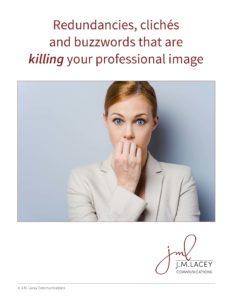And why it’s rude to use terrible grammar
In 2015, more than $180 billion was spent on advertising in the U.S.
Businesses know they need to put their names out in public, flashing their services and products so consumers will spend money. But what happens when a company’s expensive advertisement reads: “Always’s there when you need us”? Or: “We serve food on and off premise”? Perhaps: “A tasty contradicion”?
There are the typical typos in writing that spellcheck will not catch if they are spelled correctly, but are used inappropriately: “manager vs. manger,” “effect vs. affect,” “it’s vs. its,” “hone vs. home,” “public vs.” well, you get the idea.
And then there is the redundancy that occurs in our writing when the same words are used over again in our writing of a sentence or paragraph that makes it seem that we cannot tighten our writing and write exactly what we mean and to the point.
Who wants those flaws highlighted?
There is a lot of written communication in business through email, letters, text messages, memos, etc. A poorly written, badly spelled, improperly used set of sentences sends the message to the receiver (or consumer) that the writer is not only lazy, but that the quality of what he offers (or what he has to say), is shoddy. A consumer will already be offended if he receives an advertisement in the mail with the salutation, “To our loyal customer’s.” Must you also add unnecessary punctuation?
There is no doubt we all make grave writing errors. When I do, it is a bit humiliating, which is why the editing process is imperative to avoid those embarrassing moments. If you are your only editor, it is worse, because you likely will not catch the mistakes you make on a regular basis since to you it is normal. When someone (kindly) brings to my attention an error on my part, it becomes my new editing plague; moving forward, I will always catch that error. For example, when once an editor (in a rather foul mood) said he never wants to see that “s” after “toward” again: “It’s toward, not towards – TOWARD!” which I promptly followed up by checking the dictionary and noted that he was partially correct, I never added that “s” again. I can still hear his boisterous voice ringing in my head whenever I see that word.
When mistakes do happen, fix them immediately, even if it costs you more money. Those mistakes will be cheaper to adjust than the loss of trust in the millions who are laughing at you, or shaking their heads.
It can be easier to catch the errors of someone else rather than your own. You might try:
Asking colleagues
If you write material that others need to see and will be costly to print, you should circulate the information first. Have a couple or more colleagues (preferably ones who are good writers and/or editors) read it over to catch misspellings, redundancies and inaccuracies. You will be surprised that, just as noted in the above paragraph, we tend to catch the mistakes we are the ones likely to make.
Hiring an editor
The last thing you want is to waste your budget by redoing your advertising or marketing because of errors. If you circulate money-generating materials, have a professional editor review it first. You will be pleased at how much money you save by the little extra you spend at making your documents perfect.
Letting it rest
Write your material, email or letter in phases. Write the first draft. Circulate it. Let a day or two pass, then review it again. Check it for overused words, clichés, misspellings, and poorly constructed sentences. Let it rest another day. Read it out loud. It’s alarming how much we catch when we hear ourselves read it. If you do not have time for all that editing…
Giving it to someone else
Yes, hire a writer. But honestly, that writer will still give it back to you to review. The writer can construct compelling sentences and check for misspellings, but it will have your company name on it, so make sure you are comfortable with the results.
If you don’t wish to do any of the above and you are, indeed, a terrible writer (which, even if others are afraid to tell you so because you sign their checks, you know it because you say in your head or out loud: “I’m a terrible writer”), then stop writing. Do not give your company a bad reputation and lose the trust of millions of consumers because you tell them, “Were hear for you,” or betray the faith of your employees because your congratulatory email says, “all of them are whiners” rather than the “winners” you know that they are.
There are many phrases and words businesses use that are based on popularity rather than on accuracy. Make sure your organization stands out for being correct.
Want to know what words are killing your professional image?
Should “get” and “got” be removed from the English language? Is “transparency” telling the whole story? And why is “basically” a word you should never use in writing or speaking? Find out more about the ineffectiveness of these words and other phrases in my FREE report: Redundancies, clichés and buzzwords that are killing your professional image. You’ll also receive “Creative Corporate Communications,” a monthly alert to help you build trust in your organization.



Recent Comments